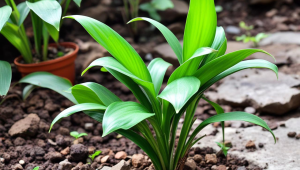茶叶市场分析英文怎么说
In the global market, tea holds a significant position, being one of the most widely consumed beverages after water. Its long - standing history and diverse cultural connotations have made it a beloved drink across different regions of the world. As a tea encyclopedia expert, understanding the tea market ysis in English is of great importance in the context of international trade and cultural exchange.

The tea market is a complex and dynamic entity. It encompasses a wide range of products, from traditional black tea, green tea, and oolong tea to more exotic varieties like white tea and pu - erh tea. Each type of tea has its own unique production process, flavor profile, and health benefits, which contribute to their different market demands. When it comes to yzing the tea market in English, it is not only about translating the terms but also about grasping the international market trends and consumer preferences.
In recent years, the global tea market has witnessed a continuous growth. The increasing awareness of the health benefits of tea, such as its antioxidant properties and potential to reduce the risk of certain diseases, has driven more consumers to choose tea as their daily beverage. In Western countries, there has been a growing trend of specialty tea consumption. Consumers are no longer satisfied with the mass - produced tea bags but are seeking high - quality, single - origin teas with unique flavors. This shift in consumer behavior has led to the rise of specialty tea shops and online tea retailers.
The demand for organic and fair - trade tea is also on the rise. With the growing concern for environmental protection and social responsibility, more consumers are willing to pay a premium for tea that is produced in an environmentally friendly and socially just manner. This has created opportunities for tea producers who can meet these criteria. In addition, the popularity of tea - based beverages, such as bule tea and iced tea, has expanded the tea market, especially among the younger generation.
When it comes to the supply side, major tea - producing countries like China, India, Kenya, and Sri Lanka play crucial roles. China, as the birthplace of tea, has a long - standing tea - growing tradition and a vast range of tea varieties. It is not only a large exporter but also has a huge domestic market. India is famous for its Assam and Darjeeling teas, which are highly regarded in the international market. Kenya is one of the largest exporters of black tea, mainly supplying the mass - market tea industry. Sri Lanka, known as Ceylon tea, has a reputation for high - quality black tea with a distinct flavor.
However, the tea market also faces some challenges. Climate change is one of the major threats. Unstable weather conditions, such as droughts, floods, and extreme temperatures, can affect the tea harvest and quality. In addition, the competition in the tea market is fierce. Producers need to constantly innovate in terms of product development, packaging, and marketing to stand out in the market.
In the international business environment, being able to yze the tea market in English is essential for tea producers, exporters, and marketers. It allows them to communicate effectively with international partners, understand the global market trends, and develop appropriate marketing strategies. For example, when writing market reports or promoting tea products on international platforms, using accurate English terms and in - depth ysis can enhance the credibility and competitiveness of the products.
Moreover, with the development of e - commerce, the tea market has become more accessible to consumers around the world. Online platforms have broken down geographical barriers, enabling small - scale tea producers to reach a global customer base. But at the same time, it also requires them to have a good command of English to interact with international customers, handle orders, and provide customer service.
In conclusion, the tea market is a vibrant and evolving sector. Analyzing the tea market in English is not just a language - related task but a comprehensive understanding of the global tea industry, including production, consumption, trends, and challenges. As a tea encyclopedia expert, I emphasize the importance of mastering this skill for anyone involved in the tea business to thrive in the international market. By keeping a close eye on the market dynamics and using English as a tool for communication and ysis, stakeholders in the tea industry can better adapt to the changing market environment and achieve sustainable development.












